What Is SEO Management?
Today, modern SEO management is not just a systematic approach to optimizing a web resource but also an excellent solution for upgrading a brand or company’s online content to significantly improve its rankings in various popular and well-known search engines. Comprehensive search engine optimization encompasses numerous disciplines, making it advantageous to collaborate with an SEO agency to stay at the forefront of all SEO strategies in search marketing.

Definition of SEO Management
SEO operations management is the practice of monitoring and managing a specifically tailored business strategy for organic search presence. This involves leveraging an SEO agency to stay updated on best practices and innovative trends in SEO tools, conducting keyword research and competitor analysis, analyzing various data, and more. Additionally, SEO operations management entails developing and modifying strategies to maximize search results and achieve higher marketing success. This includes increasing online sales and meeting all business objectives. Partnering with an SEO agency provides access to a full range of digital marketing services, helping businesses succeed in all their online endeavors.
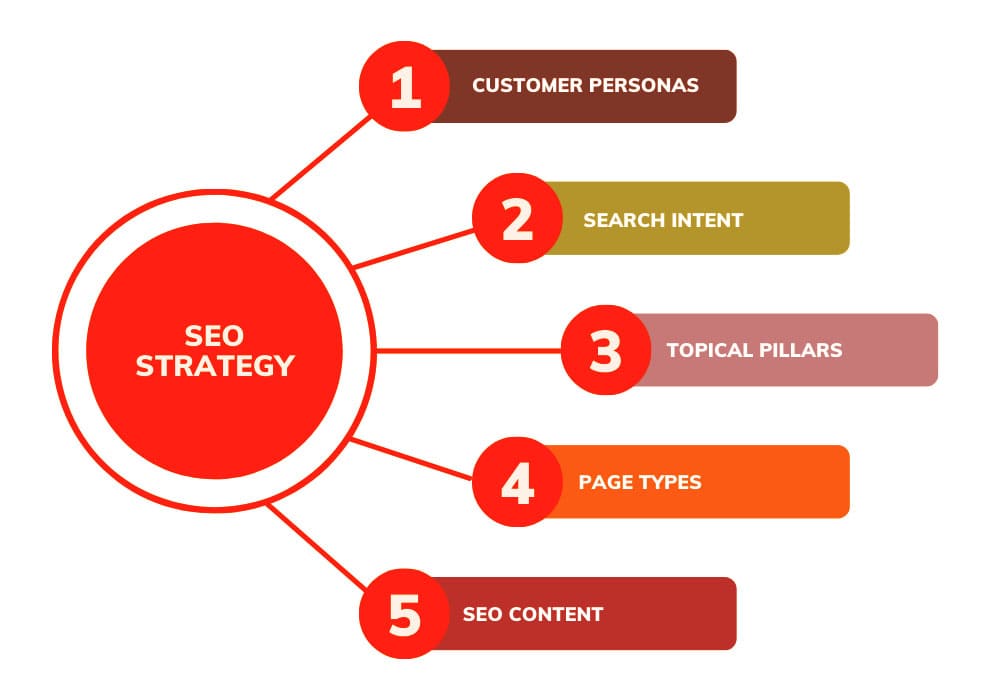
How to Conduct Successful SEO Management
In some cases, conducting search engine optimization requires considering many essential tools, knowledge, and skills of an SEO professional to perform complete content management. Entrusting tasks to an expert ensures improved search engine results and increased website traffic through the comprehensive application of SEO services. By focusing on professional SEO management, both on and off a business’s web resource, it’s possible to enhance the website’s online visibility in organic search significantly. Typically, achieving business goals involves implementing sustainable and secure strategies, adopting innovations, and making changes in line with the latest search algorithm updates. To succeed, focusing on the main pillars of SEO operations management is crucial.
SEO Audit & Analysis
Conducting a comprehensive analysis provides invaluable information that can assist businesses in SEO management. This service should become an integral part of the action plan. For instance, during an audit of competitors and their search engine optimization strategies, it is crucial to define your strategy.
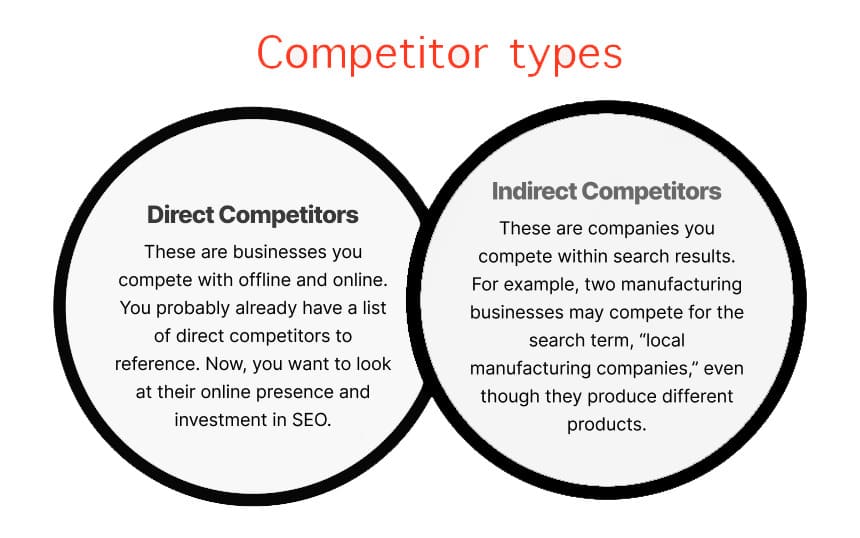
Through an SEO audit, you might discover that a direct competitor lacks a clear plan. In such cases, insights from indirect competitors can be helpful, as many owe their high search engine results page (SERP) rankings to professional and local SEO practices. Additionally, analyzing backlink profiles, domain age, optimization practices, website traffic value, and target keywords is an excellent step for business progress, development, and growth.
On-Page Optimization
The on-page SEO service (internal optimization focusing on website elements like content, HTML code, meta tags, headings, images, and more) can take time.
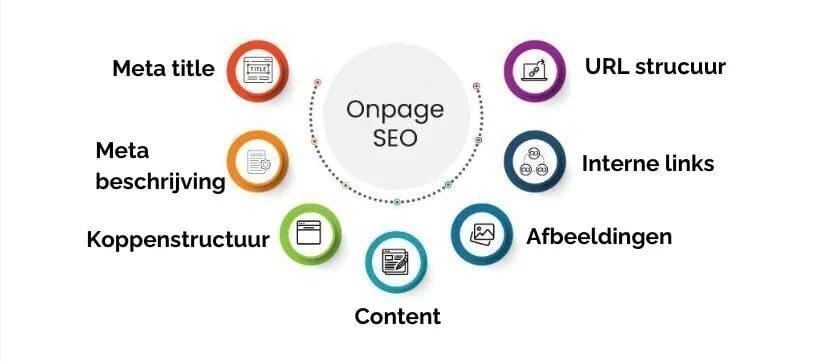
Therefore, it’s essential to approach the task with realistic forecasts, milestones, or goals. For example, if a website has 20 pages, it’s unlikely that an SEO professional can complete full on-page SEO and implement other digital marketing solutions in just one month. Setting realistic deadlines ensures high-quality execution, ultimately benefiting the business’s prosperity in the online space.
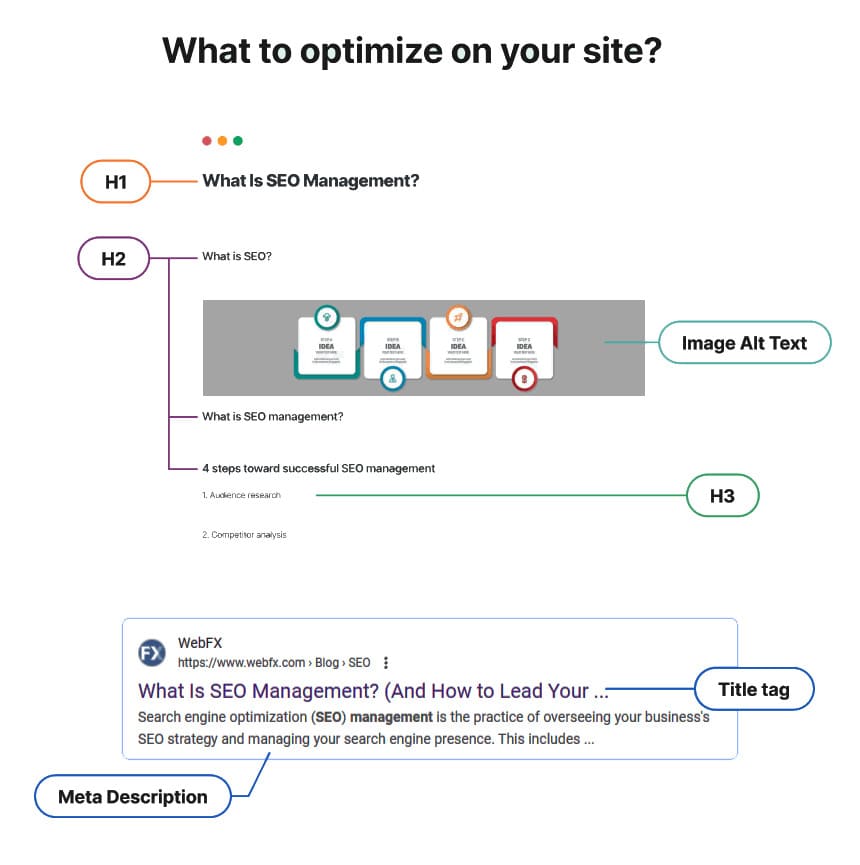
Off-Page Optimization
Off-page search engine optimization starts with engaging external web sources. In business promotion, backlinks or external links serve as trust signals for search engine results page bots, helping achieve top positions in SERPs. When numerous reputable websites link to content, search bots interpret this as a sign of its value, boosting its ranking in search engine results. High-quality link-building plays a critical role in ranking competitive keywords and phrases.
Content Creation & Optimization
Professional content marketing is a crucial and ongoing element of successful SEO operations management. Businesses must recognize its strong connection to digital marketing, local SEO, and keyword research when creating and developing high-quality content. The goal is to attract high-quality traffic and support transactional landing pages on the company’s website. Through content, businesses can diversify their web traffic and continue building trust with search bots, effectively positioning themselves as thought leaders.

Technical SEO Implementation
Technical SEO is vital for the successful execution of any business project. The entire technical SEO process and digital marketing strategies ensure a website’s accessibility, crawlability, and usability for the future. Effective technical SEO guarantees that the web resource ranks highly in search engine results. This enhances the user experience, making the brand’s website more convenient. Additionally, technical SEO improves structural elements such as URLs, data, duplicate content, redirects, and sitemaps.
SEO Reporting & Tracking
Reporting is a key element of delivering effective SEO administration services. Every SEO report provides insights into essential performance metrics, such as competitor analysis for local SEO, organic clicks on the website, organic impressions, bounce rates, and the growth from these metrics over time. Professional reports are built on a unique set of performance indicators aligned with business goals and the objectives of professional SEO.
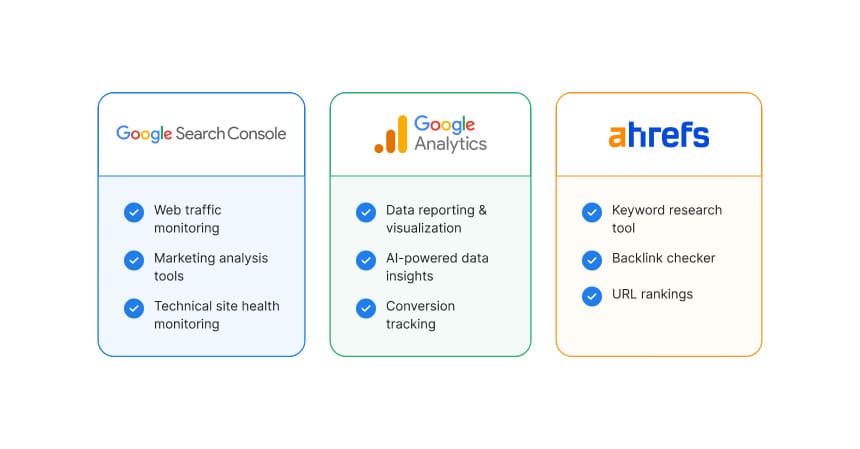
Key Performance Indicators (KPIs) for SEO Management
When it comes to SEO solutions, measuring success can seem challenging. With so many metrics available, it’s essential to identify the ones that deserve priority. To simplify the process, focus on the main KPI metrics that comprehensively view professional SEO performance and impact. These indicators collectively make SEO operations management more manageable and help track progress toward achieving set goals.
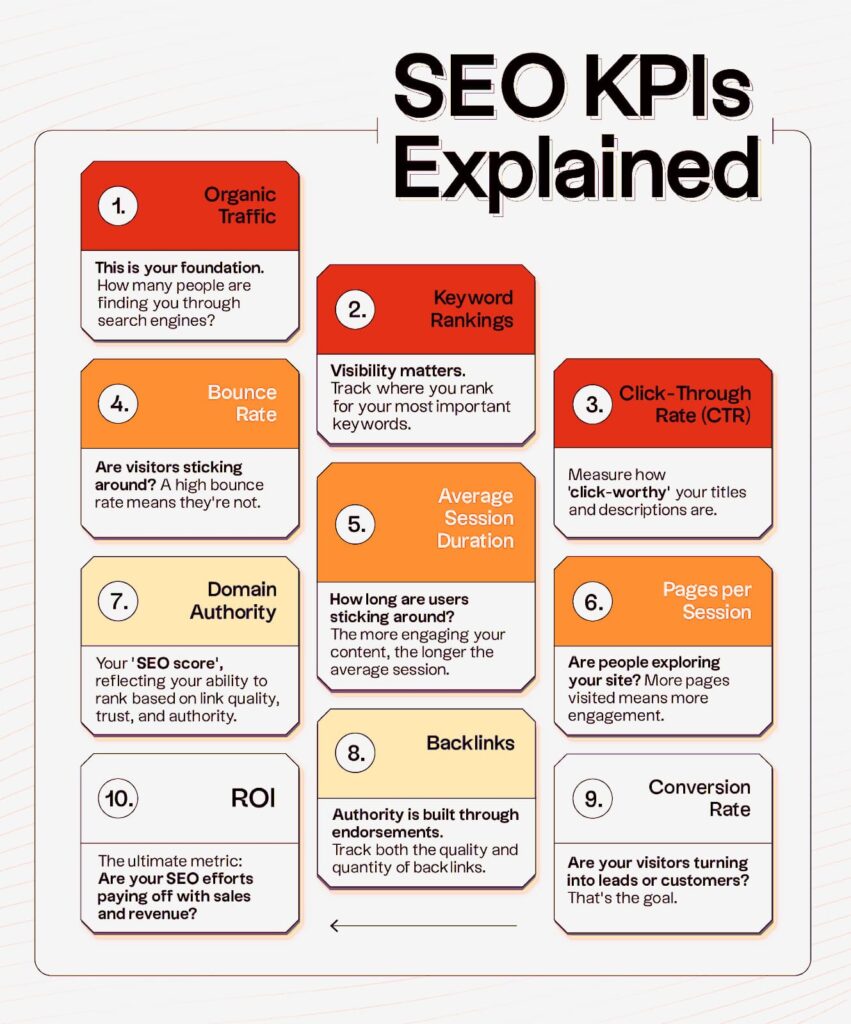
Tracking Search Results
Monitoring search results reveals whether they present relevant outcomes to website visitors. By properly optimizing search terms, businesses can achieve top rankings. Companies and brands can access this data using specialized tools (such as Google Analytics). These reports also uncover new content ideas. With varied search queries, online users will still find what they want. Businesses can conduct analyses using Google Analytics if they aim to track searches specific to their websites.
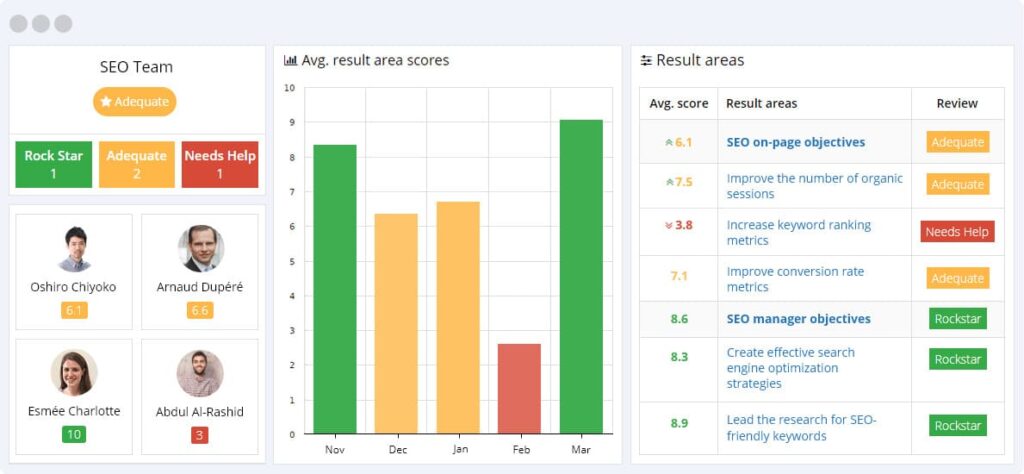
Metrics to Gauge Effective SEO
Quantitative and qualitative indicators help measure how well goals are achieved — this is the essence of SEO operations management. Metrics may vary depending on the type of website, the goals a brand or company sets for its promotion, and the specifics of the target market. However, several universal SEO KPIs are recommended for any website.
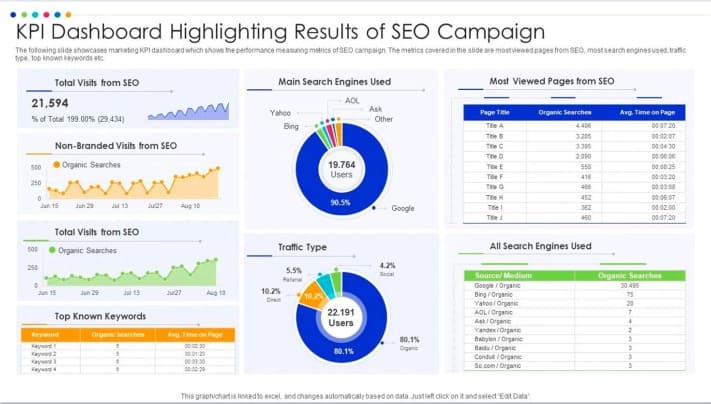
- Organic traffic
This refers to the number of visitors arriving at a business website via search engines, excluding paid campaigns. This metric reflects how well a website performs in search engine rankings. It is an indicator of a brand’s visibility in traditional search results. Tracking this metric requires tools like Google Analytics to monitor organic traffic trends over time. Pay attention to fluctuations related to content updates, optimization efforts, or algorithm changes.
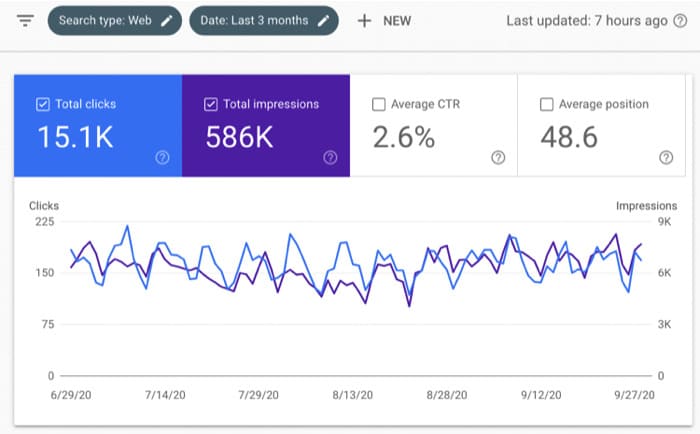
- Conversion rates
To track conversion rate changes, focus on selecting the right keywords. A website’s appearance in SERPs depends on chosen phrases, expressions, and terms. Knowing the ranking of a website for specific keywords can boost organic traffic and enhance the brand’s authority, reputation, and status. This ultimately leads to increased conversion rates. Tools like Google Search Console, Ahrefs, and others can help monitor optimization activities on the company’s website.
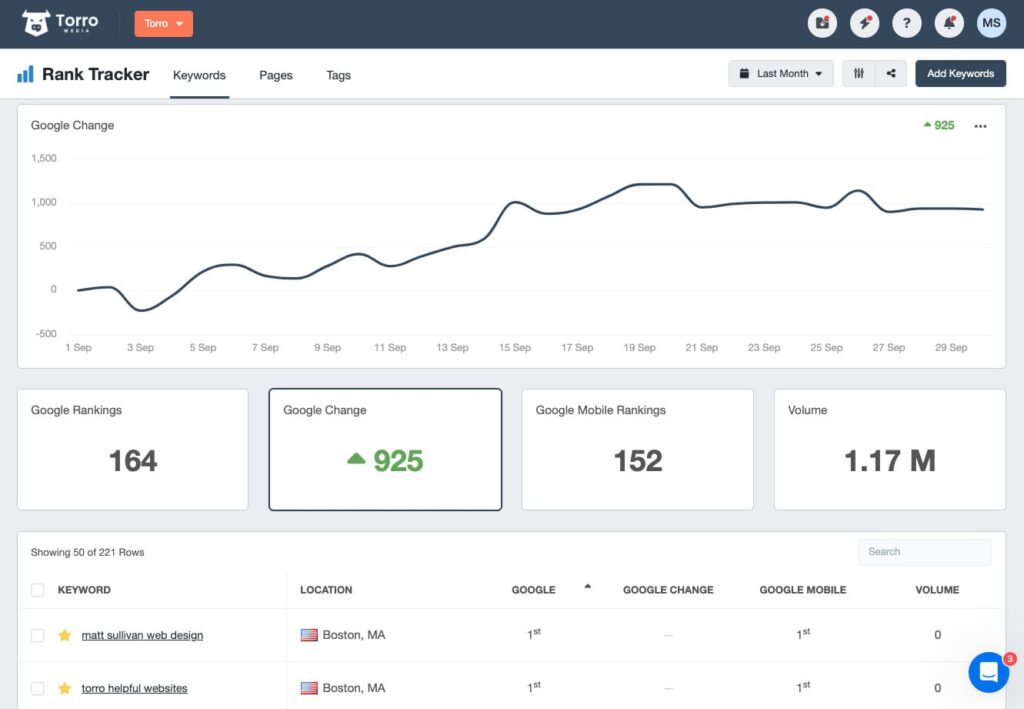
- Bounce rates
The bounce rate indicates the percentage of visitors who leave a website after viewing just one page. A high bounce rate suggests that users didn’t find what they were looking for (e.g., services or products) or were not interested in the website. Reducing bounce rates improves user engagement and conversions. Tools like Google Analytics or HubSpot can help track this critical metric.
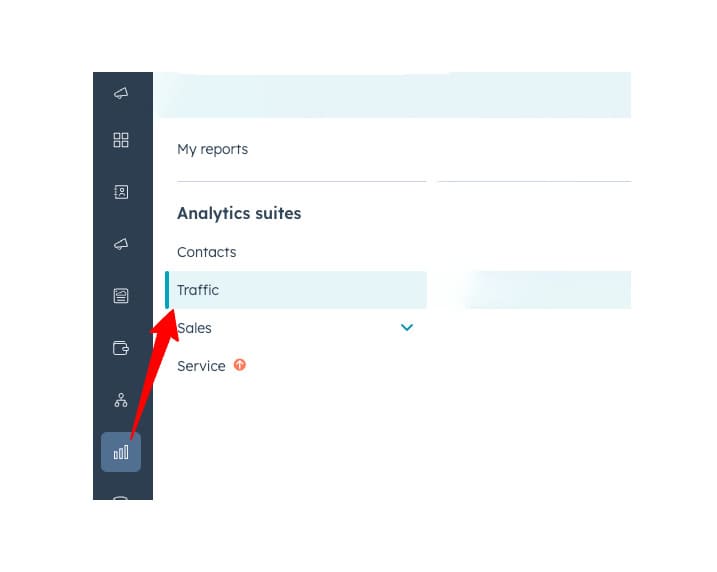
- Click-Through Rate
CTR measures the percentage of users who click on a brand’s website after seeing it in search results. A high CTR indicates that title tags and meta descriptions are relevant and appealing. A low CTR suggests the need for optimization. Google Webmaster Console lets businesses view CTR data for individual pages and keywords. Testing meta descriptions and titles help identify which elements resonate with the target audience.

The SEO Manager’s Impact on Successful SEO Campaigns
SEO managers often act as the primary point of contact with clients, managing communication, providing reports, and explaining complex technical concepts in simple terms so business owners can easily understand the key points. These professionals serve as the practical “bridge” between the SEO team and the clients. They are responsible for understanding business owners’ goals and developing tailored and competent strategies that outline objectives, tasks, and more. With excellent communication skills, a deep understanding of SEO methods, and the ability to analyze data, they play a pivotal role in achieving success.
Responsibilities of an SEO Manager
An SEO manager’s responsibilities include optimizing a business’s website performance, tracking various metrics, conducting keyword research, and adapting the site to changes in search engine algorithms to enhance visibility. All these tasks combine to create a comprehensive strategy for promoting the brand or company.
- Conducting SEO audits
SEO managers evaluate the website’s performance, identify technical issues, and ensure compliance with search engine algorithms. Regular audits uncover opportunities to improve site speed, mobile responsiveness, and user experience, laying a solid foundation for achieving top rankings.
- Keyword Research and Strategy
Effective and professional SEO starts with identifying relevant keywords. SEO managers analyze search intent and market competition to develop a targeted strategy that drives traffic, increases visibility, and aligns with user needs. Every word plays a role in attracting the right audience.
- Content Strategy & Optimization
Creating content that resonates with the business’s target audience is crucial. SEO managers ensure content is well-researched, optimized with keywords, quotes, and phrases, and structured for user readability. High-quality content fosters engagement, builds trust and enhances rankings.
- Competitive Analysis
To stay ahead, SEO managers monitor competitors’ strategies, identify trends, and uncover gaps in the market or region. By leveraging this information, they refine approaches, capitalize on opportunities, and ensure the brand stays ahead or surpasses competitors, securing a top position in the market.5.
- Reporting & Analytics
SEO managers track performance metrics such as traffic, conversions, and keyword rankings. They create detailed reports to measure success, provide valuable insights, and guide data-driven decisions for continuous improvement. Clear metrics ensure accountability and drive progress.
Skills Required for Effective SEO Management
The first step is investing in the proper education if there is increased interest in this position or a desire to build a career. To understand this field and work within this niche, learning internet marketing or taking courses that provide a strong foundation in professional SEO, content development, and data auditing is essential.
- Analytical skills
A strong SEO manager interprets data to identify trends and opportunities. The expert analyzes traffic structure, conducts audits of user behavior, and understands how to accurately “read” rankings to refine strategies. This ability ensures that all decisions made during brand or company promotion are based on data, leading to measurable success.
- Knowledge of SEO tools
Proficiency in well-known and essential tools such as Google Analytics, SEMrush, and Ahrefs allows any competent SEO manager to track performance, conduct audits, and identify areas for growth. These platforms are essential for practical use during business projects to develop the most effective optimization strategies.
- Communication skills
A competent SEO manager can bridge the gap between technical teams and stakeholders. Clear, accurate, and professional communication ensures collaboration, conveys results, and unites everyone in achieving goals, ensuring smooth execution and the success of the business project.
- Technical Expertise
From understanding website architecture to optimizing performance across mobile and other modern devices, technical skills are crucial for solving server-side issues. Experience with coding, schema markup, and website speed optimization enhances an individual strategy’s effectiveness, including various optimization actions and services.
- Problem-Solving Skills
SEO solutions are highly dynamic and require rapid adaptation to challenges such as algorithm updates or traffic declines. An experienced manager will always be able to identify problems, find exceptional, engaging, and creative solutions, and ensure consistent progress despite obstacles encountered during brand or company promotion.
Benefits of Effective SEO Management
The modern Internet marketing and advertising market and SEO offer other main channels (Search Engine Advertising, Social Media Marketing) and supplementary channels (Email campaigns, viral advertising, etc.). However, since using multiple channels can be expensive and not accessible to everyone, businesses often have to focus their financial and time resources on just one. SEO promotion is usually the primary channel due to its many advantages. These benefits include the lack of the need to pay for every click, loyalty, and trust from internet users, return on investment, flexible budget management, long-term results and sustained effects, broad audience reach, and much more.
Elit-Web`s Comprehensive SEO Management Services
When the goal is to get a website to the top of search engine results, attract traffic, and gain new customers, it’s best to turn to SEO specialists. They can conduct a comprehensive audit of the website (identifying technical issues, content problems, and structural weaknesses), develop a keyword strategy (studying the target audience, analyzing competitors to select relevant keywords), optimize content (strengthening the brand or company’s position, enhancing image, status, and reputation, maintaining audience attention), build a strong backlink profile (establishing trust with search engines, choosing high-quality links, etc.), and provide reporting (showing the results that demonstrate the maximum return on investment). The company works with any niche, applies a personalized approach, and uses proven methods. Specialists guarantee stable results and consider every detail when promoting the business.
FAQ
What Does On-Site SEO Management Involve?
On-site SEO focuses on improving website elements to increase its visibility and relevance. The process includes integrating keywords, enhancing meta titles, descriptions, and headings, and ensuring the content aligns with user intent. Additionally, it involves improving the website’s speed, mobile-friendliness, and internal linking structure. By refining these factors, on-site SEO helps search engines better understand web pages, boosting rankings and enhancing user experience.
What Does Off-Site SEO Management Involve?
Off-site SEO enhances a website’s authority, status, image, and trustworthiness by focusing on external factors. Key strategies include acquiring high-quality backlinks from authoritative web sources, managing a business’s online reputation, and utilizing social media platforms to increase visibility. This process also involves monitoring brand or company mentions and engaging in guest blogging. By strengthening the website’s digital presence beyond its pages, off-site SEO improves rankings and attracts a new, additional audience.
Do I Need SEO Management Services?
If a business owner wants their business to thrive online, SEO operations management services should be considered. They help improve visibility, drive targeted traffic, and increase user engagement. SEO specialists are always up to date with changes in online algorithms and use customized strategies to boost rankings and other growth metrics. Whether a business owner is launching a new website or aiming to outpace competitors, professional SEO ensures that the business’s digital presence is optimized for success in the online arena.
How much does SEO management cost?
The cost of SEO operations management varies depending on factors such as the scope of the business project, competition, and business objectives. Monthly fees can range from several hundred to several thousand dollars. While there are more affordable options (such as one-time or individual services), premium services offer comprehensive strategies and measurable results. Investing in SEO is a long-term strategy that supports organic growth, making it an invaluable asset for the success of any business in the online space.





